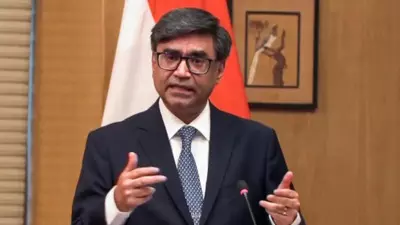Unpacking the Tensions: An Analysis of India's Diplomatic Stance Amidst Operation Sindoor

In light of recent developments, particularly following the Pahalgam terror attack, the Ministry of External Affairs (MEA) of India has taken a firm stand against Pakistan's claims regarding military actions. This situation has escalated into a serious diplomatic discourse as Foreign Secretary Vikram Misri addressed the media, providing insights into India's perspective on the ongoing tensions. It's a complex narrative that intertwines national security, international relations, and the historical context of India-Pakistan interactions.
Operation Sindoor was launched as a direct response to the tragic Pahalgam attack which claimed the lives of 26 individuals. Misri highlighted that this operation was not an act of aggression but a necessary measure in self-defense against terrorist activities emanating from Pakistan. The operation reportedly targeted terrorist infrastructure, a point Misri was keen to emphasize during the press briefing.
Misri's remarks resonate with a significant segment of the Indian populace who view Pakistan as a persistent threat due to its alleged support for terrorist outfits like Jaish-e-Mohammed and Lashkar-e-Taiba. The stark reality of this situation is that every military action taken by India is framed as a response rather than an escalation. Misri stated, "The original escalation was the Pahalgam attack, and our actions were merely a reaction to that."
During the press conference, Misri strongly rebutted Pakistan's claims of having downed Indian jets, calling them a fabrication. He pointed out Pakistan's long history of misinformation, stating, "This is a country that started lying as soon as it was born." The narrative he presented was clear: Pakistan's assertions are seen as an attempt to divert attention from its own actions and responsibilities regarding cross-border terrorism.
The Foreign Secretary also addressed the issue of state funerals held for individuals described by Indian intelligence as terrorists, questioning the very nature of these claims. If these individuals were indeed civilians, he argued, why were they honored with state funerals? This rhetorical question underscores India's frustration with Pakistan's persistent denial of its support for terrorism.
The implications of this ongoing conflict extend far beyond the borders of India and Pakistan. Misri pointed out Pakistan's reputation as a hub for international terrorism, referencing the historical context of Osama Bin Laden's presence in the country. Such comments are aimed at raising awareness among the international community regarding Pakistan's role in global terrorism. The MEA's approach seeks to not only defend India's actions but also to highlight the need for collective international efforts to combat terrorism.
Furthermore, India's diplomatic strategy appears to be centered on maintaining a balance between showing military strength and seeking de-escalation. Misri reiterated that the option for peace and de-escalation lies with Pakistan, indicating India's willingness to pursue dialogue provided it is reciprocated. This nuance in diplomatic communication is crucial as it positions India as a responsible nation looking for peace, while also being prepared to defend itself.
As tensions continue to simmer, the global audience watches closely. The MEA's strategy of responding firmly while simultaneously advocating for dialogue underlines India's complex approach to foreign policy in the region. Moving forward, it will be essential for India to maintain this balance, ensuring national security while also engaging with international partners to address the broader implications of terrorism in South Asia. The narrative crafted by the MEA is as much about shaping international perception as it is about responding to immediate threats. The situation remains fluid, and the coming days could see further developments as both countries navigate this challenging landscape.
